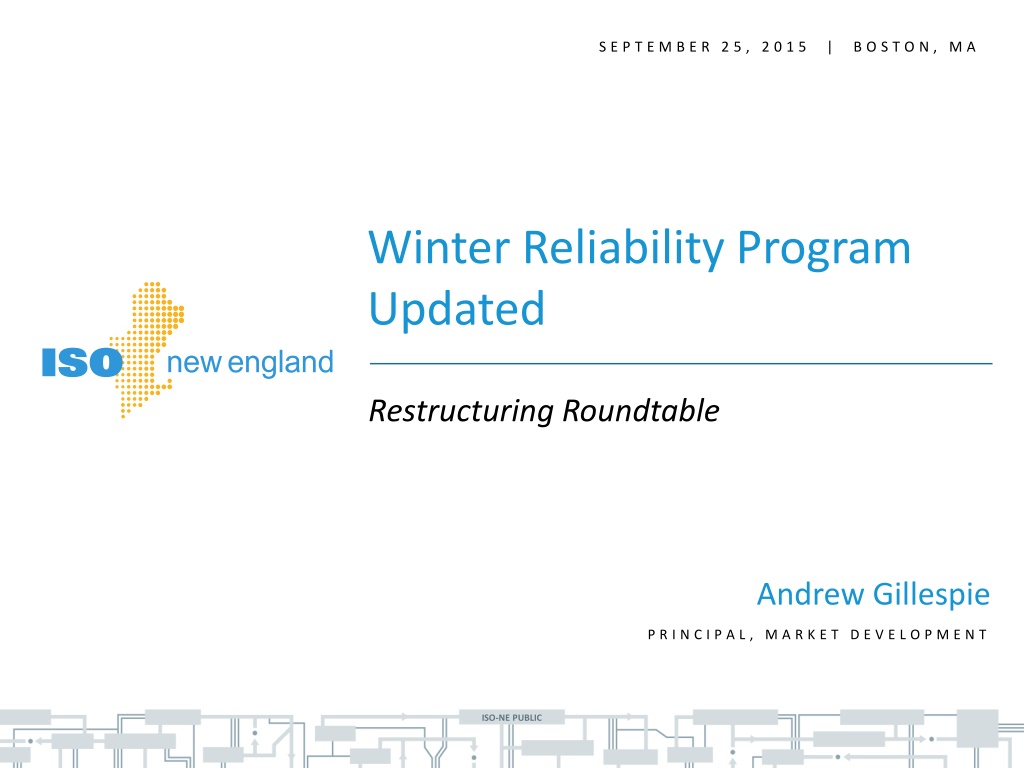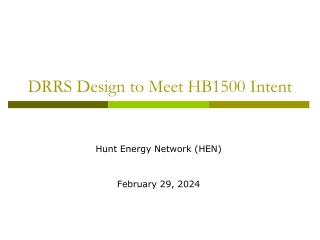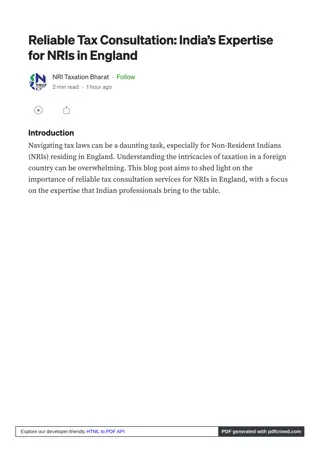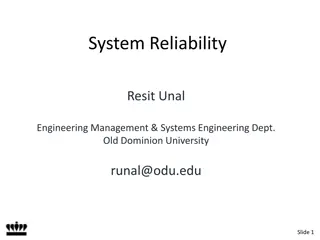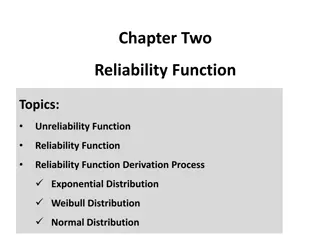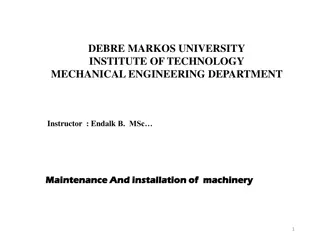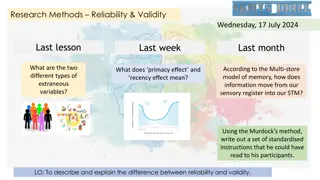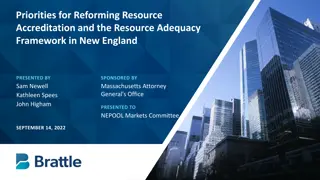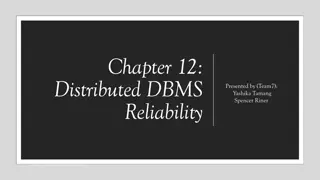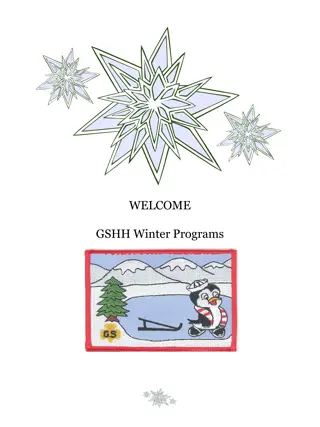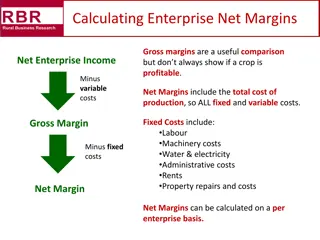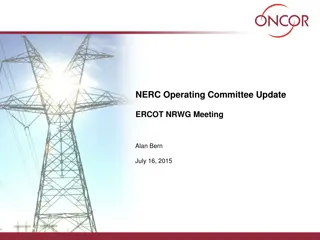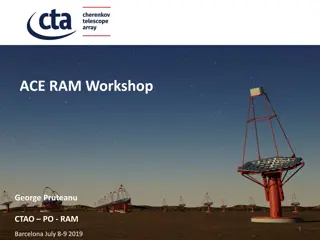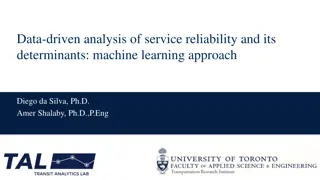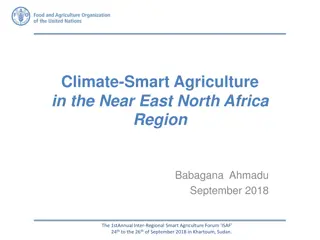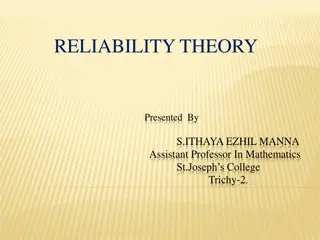Addressing Winter Reliability Challenges in the New England Region
Winter reliability challenges in the New England region, identified by ISO-NE, stem from uncertainties in resource performance and availability, particularly natural gas resources. The region faces risks due to a reliance on just-in-time fuel delivery and inadequate firm gas transportation. Measures like the Pay-for-Performance (PFP) capacity market design have been introduced to enhance resource availability during stressed system conditions. Winter programs have been implemented as interim solutions until long-term market adjustments take effect, aimed at ensuring generator performance and fuel adequacy during peak demand periods.
Download Presentation

Please find below an Image/Link to download the presentation.
The content on the website is provided AS IS for your information and personal use only. It may not be sold, licensed, or shared on other websites without obtaining consent from the author. Download presentation by click this link. If you encounter any issues during the download, it is possible that the publisher has removed the file from their server.
E N D
Presentation Transcript
S E P T E M B E R 2 5 , 2 0 1 5 | B O S T O N , M A Winter Reliability Program Updated Restructuring Roundtable Andrew Gillespie P R I N C I P A L , M A R K E T D E V E L O P M E N T ISO-NE PUBLIC
For More than a Decade, the ISO Has Identified Winter Reliability Challenges Regionis increasingly reliant on resources with uncertain performance and availability Natural gas resources lack firm gas transportation or fuel storage and rely on just-in-time fuel Natural Gas 44% Hydro, Pump Storage & Renewables 16% Oil & Coal 6% More than 8,000 MW of non-gas-fired generation have been identified as being at risk for retirement Nuclear 34% From 2007-2012, region experienced increased forced outages (specifically fossil-steam units) and poor fleet response during stressed system conditions Regional Electric Energy Production by Fuel Type (2014) ISO-NE PUBLIC 2
Winter Programs Are Needed Until Long-term Market Solutions Are in Effect Generator availability and performance during the winter of 2012/13 underscored shortcomings in the current capacity market design Winter programs were created for 2013/14 and 2014/15 In early 2014, the ISO filed the Pay-for-Performance (PFP) capacity market design which ties capacity payments to resources performance during stressed system conditions PFP is a comprehensive, long-term, market-based solution to improve resource availability and performance during stressed system conditions Additional winter programs are needed in the interim because PFP changes won t be in effect until June 2018 ISO-NE PUBLIC 3
Past Two Winter Programs Provided a Stop-Gap Solution Programs strengthen fuel adequacy when pipelines are constrained and generators have difficulty replenishing oil supplies in the middle of winter Programs improved winter fuel assurance by creating an incentive for generators to secure fuel arrangements going into the winter while offsetting the risk of carrying unused fuel 2013/14 program included a prepayment for oil procurement 2014/15 program included a payment for unused inventory Resource solutions expanded over past two winters Winter 2013/14 Winter 2014/15 Oil LNG Oil Demand Response Demand Response ISO-NE PUBLIC 4
2013/14 Winter Reliability Program Region experienced historically cold weather (polar vortex) High natural gas demand combined with pipeline constraints resulted in sustained high natural gas prices ISO frequently operated system with little or no gas-fired generation and in some cases oil-fired generators were economic 2.7 million barrels of oil were burned Cost to the region was approximately $65 million (<2% of wholesale costs) Program helped ensure reliability For winter 2013/14 the wholesale cost of electricity totaled about $5 billion in New England ISO-NE PUBLIC 5
2014/15 Winter Reliability Program Monthly Avg. Wholesale Electricity $/MWh and Natural Gas Prices $/MMBtu High energy prices during the 2013/14 winter attracted LNG to the region this past winter Increased LNG injections (that were not part of the winter program) helped supplement constrained pipeline supply from the west 2.7 million barrels of oil were burned Cost to the region was approximately $45 million Program helped ensure reliability Winter 2013/14 Winter 2012/13 ISO-NE PUBLIC 6
FERC Has Articulated Market Design Objectives In early winter program orders, FERC highlighted objectives for overall market design as well as the various winter programs: Market-based Out-of-market only in limited circumstances Fuel neutral Long-term Product of stakeholder participation ISO-NE PUBLIC 7
NEPOOL and ISO Developed Alternative Proposals for Future Winter Program FERC, in its order approving the 2014/15 winter program, stated future programs should be a market-based solution On July 15, 2015, the ISO and NEPOOL submitted two alternative sets of market rule changes to establish a winter reliability program for the next three winters Procedurally, when NEPOOL achieves at least a 60% vote on an alternative to an ISO rule change, a jump-ball scenario occurs and FERC may choose to adopt either proposal or a combination of the proposals Both proposals were intended to address regional winter reliability challengescreated by New England s increased reliance on natural gas-fired generation ISO-NE PUBLIC 8
There Are Similarities Between the Proposals NEPOOL s proposal was based on the design of last winter s (2014/15) program, which provided compensation for: 1. Carrying costs of fuel oil that was unused at the end of the winter; 2. Unused liquefied natural gas contract volumes; and 3. Supplemental demand response The ISO s proposal shared the first two design features of NEPOOL s proposal, but also provided compensation for any generator that is supplied by on-site fuel Any assets that are supplied by on-site fuel could participate, including, for example, nuclear units (fueled by uranium), coal- fired units, biomass resources, and units fueled by water, including pumped storage facilities ISO-NE PUBLIC 9
ISOs Proposal Would Have Made More Resources Eligible to Participate than NEPOOL s Proposal ISO NEPOOL Proposal Proposal Oil LNG Demand Response Nuclear Hydro Biomass Coal Payment rate under both proposal is the same based on oil rate determined each July ISO-NE PUBLIC 10
Order and Implications FERC s September 11 Order conditionally accepted the NEPOOL proposal finding it just and reasonable and preferable to the ISO proposal The added cost of expanding last year s program and stakeholder support for continuing with a similar program were factors in FERC s decision Order directs ISO to submit a compliance filing by October 26, 2015, to include the same program compensation formula used in last year s program to calculate the annual payment rate for the next three winters ISO-NE PUBLIC 11
Deadline for Winter Program Resource Participation Request Forms is Coming Soon Request to Participate forms are available at: www.iso-ne.com/participate/support/forms Forms must be submitted by October 1, 2015, to ISO New England Customer Support at custserv@iso-ne.com ISO-NE PUBLIC 12
